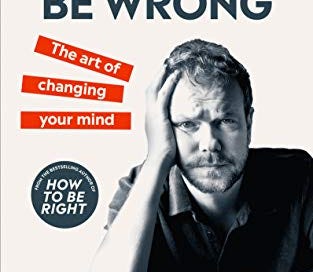A review of James O’Brien’s How Not To Be Wrong
The sequel to How To Be Right reads like a staged modern-day struggle session
To introduce How Not To Be Wrong, James O’Brien quotes the classic lines from W.B. Yeats’ ‘The Second Coming’ – quite rightly a staple of Quotations dictionaries:
‘The best lack all conviction, while the worst
Are full of passionate intensity.’
Now I must admit that O’Brien did not strike me as someone who lacks conviction. Nor did he seem to be lacking in passionate intensity. And the rest of his book does little to suggest otherwise. The reader finds in it all of the self-righteousness, absolutism and denunciations of opponents which have grounded his popularity and notoriety.
Nevertheless, following those Yeats lines, it does begin with a sort of confession, as the progressive shock-jock attempts to show a different, more humble side of himself.
He writes about how his position as a radio phone-in host means that,
. . . I have been uniquely positioned to observe the drawing up of battlelines that, without a fairly profound shift in the way we discuss controversial issues, seem destined to remain in place for generations to come. It is a situation that terrifies me and makes me worry for my children’s future. It is perhaps best summarised by an English caller, married to an Indian woman, who explained to me in the middle of 2019 that he knew his political hero was a liar, a racist and a fraud, but that he offered him full-throated support, that he actively ‘enjoyed’ being lied to, ‘because it upsets people like you’. I’m still not sure precisely what he means but I hope to be closer to understanding him by the end of this book. It seems pretty clear, though, that some of the responsibility for his outwardly outrageous perspective might lie not just with people ‘like’ me, but with me personally.
However, any readers expecting that he might actually try to understand and sympathise with this caller, or take some responsibility for the drawing up of our political ‘battlelines’, should be dissuaded by the obviously pejorative use of the word ‘English’ and the way O’Brien speaks on the man’s behalf in a particularly unflattering, partisan manner.


